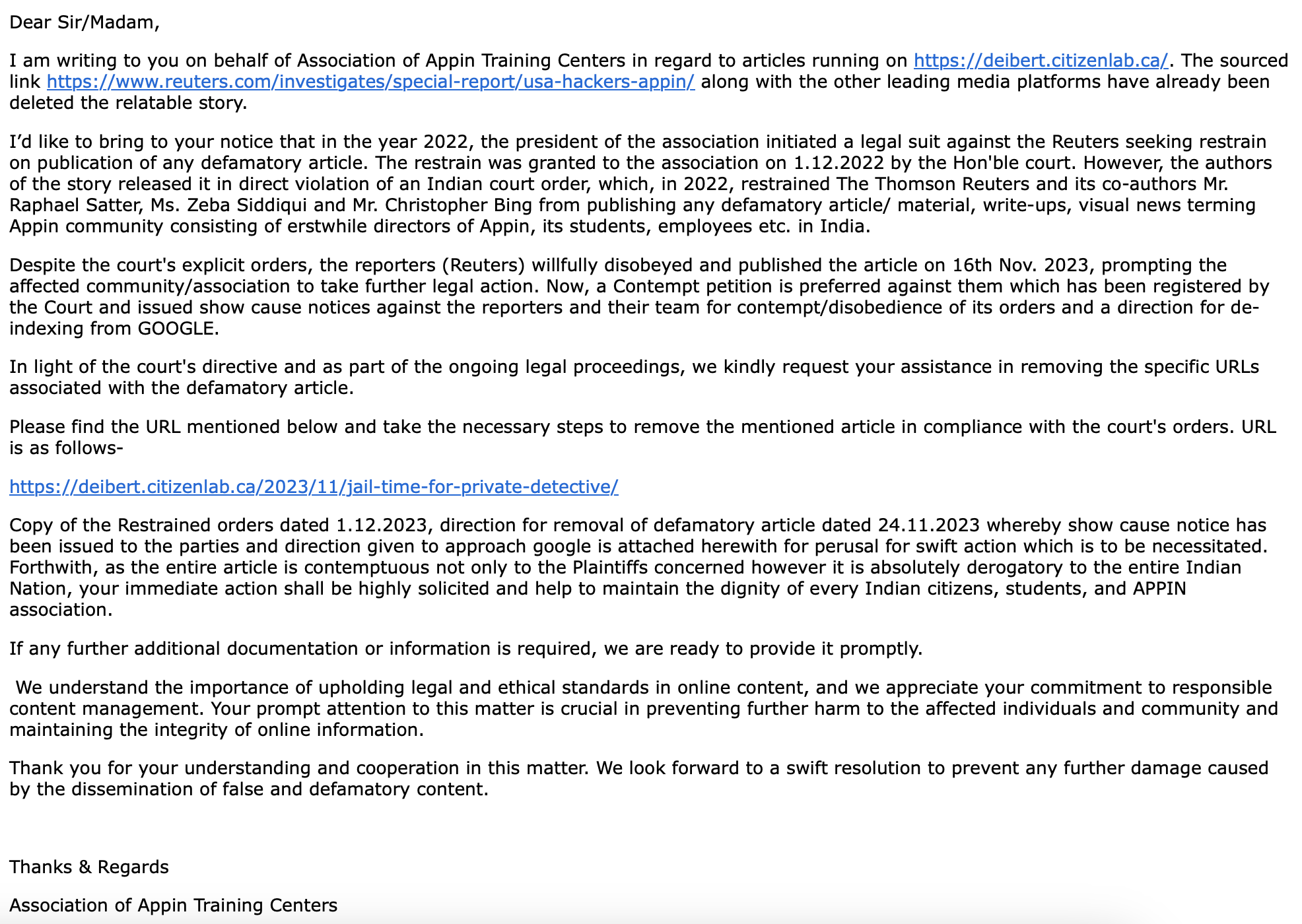The French Detention: Why We're Watching the Telegram Situation Closely
EFF is closely monitoring the situation in France in which Telegram’s CEO Pavel Durov was charged with having committed criminal offenses, most of them seemingly related to the operation of Telegram. This situation has the potential to pose a serious danger to security, privacy, and freedom of expression for Telegram’s 950 million users.
On August 24th, French authorities detained Durov when his private plane landed in France. Since then, the French prosecutor has revealed that Durov’s detention was related to an ongoing investigation, begun in July, of an “unnamed person.” The investigation involves complicity in crimes presumably taking place on the Telegram platform, failure to cooperate with law enforcement requests for the interception of communications on the platform, and a variety of charges having to do with failure to comply with French cryptography import regulations. On August 28, Durov was charged with each of those offenses, among others not related to Telegram, and then released on the condition that he check in regularly with French authorities and not leave France.
We know very little about the Telegram-related charges, making it difficult to draw conclusions about how serious a threat this investigation poses to privacy, security, or freedom of expression on Telegram, or on online services more broadly. But it has the potential to be quite serious. EFF is monitoring the situation closely.
There appear to be three categories of Telegram-related charges:
- First is the charge based on “the refusal to communicate upon request from authorized authorities, the information or documents necessary for the implementation and operation of legally authorized interceptions.” This seems to indicate that the French authorities sought Telegram’s assistance to intercept communications on Telegram.
- The second set of charges relate to “complicité” with crimes that were committed in some respect on or through Telegram. These charges specify “organized distribution of images of minors with a pedopornographic nature, drug trafficking, organized fraud, and conspiracy to commit crimes or offenses,” and “money laundering of crimes or offenses in an organized group.”
- The third set of charges all relate to Telegram’s failure to file a declaration required of those who import a cryptographic system into France.
Now we are left to speculate.
It is possible that all of the charges derive from “the failure to communicate.” French authorities may be claiming that Durov is complicit with criminals because Telegram refused to facilitate the “legally authorized interceptions.” Similarly, the charges connected to the failure to file the encryption declaration likely also derive from the “legally authorized interceptions” being encrypted. France very likely knew for many years that Telegram had not filed the required declarations regarding their encryption, yet they were not previously charged for that omission.
Refusal to cooperate with a valid legal order for assistance with an interception could be similarly prosecuted in most international legal systems, including the United States. EFF has frequently contested the validity of such orders and gag orders associated with them, and have urged services to contest them in courts and pursue all appeals. But once such orders have been finally validated by courts, they must be complied with. It is a more difficult situation in other situations such as where the nation lacks a properly functioning judiciary or there is an absence of due process, such as China or Saudi Arabia.
In addition to the refusal to cooperate with the interception, it seems likely that the complicité charges also, or instead, relate to Telegram’s failure to remove posts advancing crimes upon request or knowledge. Specifically, the charges of complicity in “the administration of an online platform to facilitate an illegal transaction” and “organized distribution of images of minors with a pedopornographic nature, drug trafficking,[and] organized fraud,” could likely be based on not depublishing posts. An initial statement by Ofmin, the French agency established to investigate threats to child safety online, referred to “lack of moderation” as being at the heart of their investigation. Under French law, Article 323-3-2, it is a crime to knowingly allow the distribution of illegal content or provision of illegal services, or to facilitate payments for either.
It is not yet clear whether Telegram users themselves, or those offering similar services to Telegram, should be concerned.
In particular, this potential “lack of moderation” liability bears watching. If Durov is prosecuted because Telegram simply inadequately removed offending content from the site that it is generally aware of, that could expose most every other online platform to similar liability. It would also be concerning, though more in line with existing law, if the charges relate to an affirmative refusal to address specific posts or accounts, rather than a generalized awareness. And both of these situations are much different from one in which France has evidence that Durov was more directly involved with those using Telegram for criminal purposes. Moreover, France will likely have to prove that Durov himself committed each of these offenses, and not Telegram itself or others at the company.
EFF has raised serious concerns about Telegram’s behavior both as a social media platform and as a messaging app. In spite of its reputation as a “secure messenger,” only a very small subset of messages on Telegram are encrypted in such a way that prevents the company from reading the contents of communications—end-to-end encryption. (Only one-to-one messages with the “secret messages” option enabled are end-to-end encrypted) And even so, cryptographers have questioned the effectiveness of Telegram’s homebrewed cryptography. If the French government’s charges have to do with Telegram’s refusal to moderate or intercept these messages, EFF will oppose this case in the strongest terms possible, just as we have opposed all government threats to end-to-end encryption all over the world.
This arrest marks an alarming escalation by a state’s authorities.
It is not yet clear whether Telegram users themselves, or those offering similar services to Telegram, should be concerned. French authorities may ask for technical measures that endanger the security and privacy of those users. Durov and Telegram may or may not comply. Those running similar services may not have anything to fear, or these charges may be the canary in the coalmine warning us all that French authorities intend to expand their inspection of messaging and social media platforms. It is simply too soon, and there is too little information for us to know for sure.
It is not the first time Telegram’s laissez faire attitude towards content moderation has led to government reprisals. In 2022, the company was forced to pay a fine in Germany for not establishing a lawful way for reporting illegal content or naming an entity in Germany to receive official communication. Brazil fined the company in 2023 for failing to suspend accounts of supporters of former President Jair Bolsonaro. Nevertheless this arrest marks an alarming escalation by a state’s authorities. We are monitoring the situation closely and will continue to do so.







